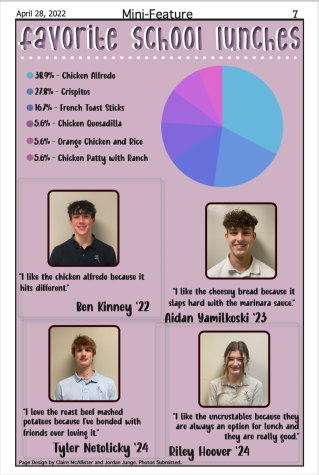Navigating language barriers
February 18, 2021
Asking someone for help can be a simple task, until there is a barrier between the two people, making it not so simple.
Since her early days in Cedar Rapids, Iowa, interpreting has been an important part of life for Xavier High School Spanish teacher Vicki Hoffman. After moving from a Hispanic community in northeast Iowa, one phone call secured Hoffman a job with Humble Language Institute in Cedar Rapids starting in June of 2008.
Hoffman explains how she balances her work and schedule as an interpreter, as well as a full time teacher at Xavier.
“Every Sunday, I get a schedule of where I need to go for the week, sometimes at the dentist office, sometimes at pediatrician offices, primarily with UnityPoint Health, but I have worked all over,” Hoffman said.
While her primary position has been an interpreter in the medical field, she stated how she has recently involved herself in working with social workers in Linn County. With her line of work, she expresses how important it is to be completely unbiased in the situation. Interpreters are there to translate exactly what is said with no judgment or opinion of their own.
With the recent hit of the pandemic in the last year, Hoffman describes how interpreting has evolved.
“We (live interpreters) no longer, or very seldom, go to the hospital and work. We used to get called to go to the ER 24 hours a day, seven days a week. That was rough to get called at 2 a.m. on a Sunday morning and go in on a moment’s notice,” Hoffman said.
Now, working through Zoom or via computer has begun to take on a feeling of normalcy as these changes are being adapted to.
Besides changing the physical state of where people are when interpreting occurs, Hoffman commented on how masks also cause issues as a part of human communication is through body language and the use of facial expressions.
While it can be difficult, the pandemic has not stopped Hoffman from going out and offering a helping hand. Not only does she get to make sure her clients are feeling respected and understood, but it is also important for her to have the opportunity to form connections.
“I have interpreted during the labor and delivery of a child. I have seen many of those children grow up and go to school. It is fun to talk to them and keep up with them and their families. Some of them even call me ‘Tía’ (aunt) and as a result I get invited to a lot of birthday parties, baptisms and Quinceañeras,” Hoffman said.
Hoffman’s daughter, Adriana Baca, also gave her input on the importance of her mom’s work.
“My mom not only helps people understand what their doctor is saying to them, and vice versa, she also helps convert different social and cultural cues and customs from person to person. She does a job so widely needed in this changing, global world that is so often overlooked,” Baca said.
With her hard work and will to help others, Hoffman has impacted both her daughter and those around her and that work does not go unnoticed as the demand for interpreters continues to increase.
According to the U.S. Bureau of Labor Statistics, the employment of interpreters is projected to grow 20 percent by 2029.
Her ability to interpret has allowed her to help others navigate their way around language barriers, including her current students.
Xavier sophomore Maci Kadlec shares her thoughts on Hoffman bringing her work to the classroom.
“I think it is inspiring how much she has impacted those who have a need to understand the language across Iowa. Her experience has transferred by always pushing her students to keep learning Spanish,” Kadlec said.
The dedication Hoffman has to sharing her knowledge with others allows for her to not only be impactful in the classroom, but in the community too.



